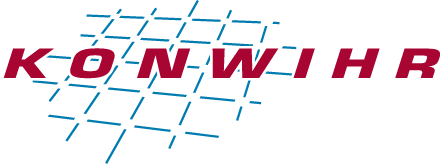Summary
The University of Regensburg operates a general-purpose HPC cluster and several application-specific supercomputers. Our HPC team supports users of the university in porting, parallelizing and optimizing their simulation codes. If the general-purpose cluster is not sufficient for a particular application we help our users to access the larger systems at LRZ or RRZE.
Particular expertise is available in the field of Lattice Quantum Chromodynamics (QCD), which is one of the most important theoretical tools in particle physics. Several generations of custom supercomputers have been developed in co-design efforts involving the Regensburg group, other academic institutions, and industrial partners such as IBM and Intel. The expertise of the Regensburg group also includes the development of algorithms tuned to the specific hardware and optimized implementations supporting strong scaling on large supercomputers. The group actively contributes to community libraries such as Grid. Close contacts exist with major hard- and software vendors such as Intel, Nvidia, Arm, and Fujitsu.
While the main focus is on Lattice QCD, the relevant techniques are applicable to a wide range of applications. Examples include problems in bioinformatics such as genome analysis or cancer progression based on machine learning. The HPC expertise of the Regensburg group has been employed to significantly accelerate the corresponding codes.
The Regensburg group offers a number of courses on parallel computing and on Lattice QCD. It supports users in all aspects relevant for HPC in particle physics and beyond.
Supported KONWIHR Projects
Contact
Prof. Dr. Tilo Wettig, University of Regensburg
Project Scientists
Dr. Nils Meyer, University of Regensburg
Dr. Stefan Solbrig, University of Regensburg
Teaching
- Parallel Programming, one-semester course offered once a year
- Lattice QCD I and II, two one-semester courses offered once a year each
- Computer Architectures for Scientific Applications I and II, two one-week block courses offered once a year each
- Numerical Methods, one-semester course offered once a year
- Algorithms and Data Structures, one-semester course offered once a year
Selected Publications
- R. Schill, S. Solbrig, T. Wettig, R. Spang, “Modelling cancer progression using Mutual Hazard Networks”, Bioinformatics, btz513 (2019) 1 [bioRxiv:10.1101/450841]
- N. Meyer, P. Georg, D. Pleiter, S. Solbrig, T. Wettig, “SVE-enabling Lattice QCD Codes”, 2018 IEEE International Conference on Cluster Computing (CLUSTER) 623 [arXiv:1901.07294]
- P. Georg, D. Richtmann, T. Wettig, “pMR: A high-performance communication library”, PoS (LATTICE2016) 361 [arXiv:1701.08521]
- S. Heybrock, M. Rottmann, P. Georg, T. Wettig, “Adaptive algebraic multigrid on SIMD architectures”, PoS (LATTICE2015) 036 [arXiv:1512.04506]

